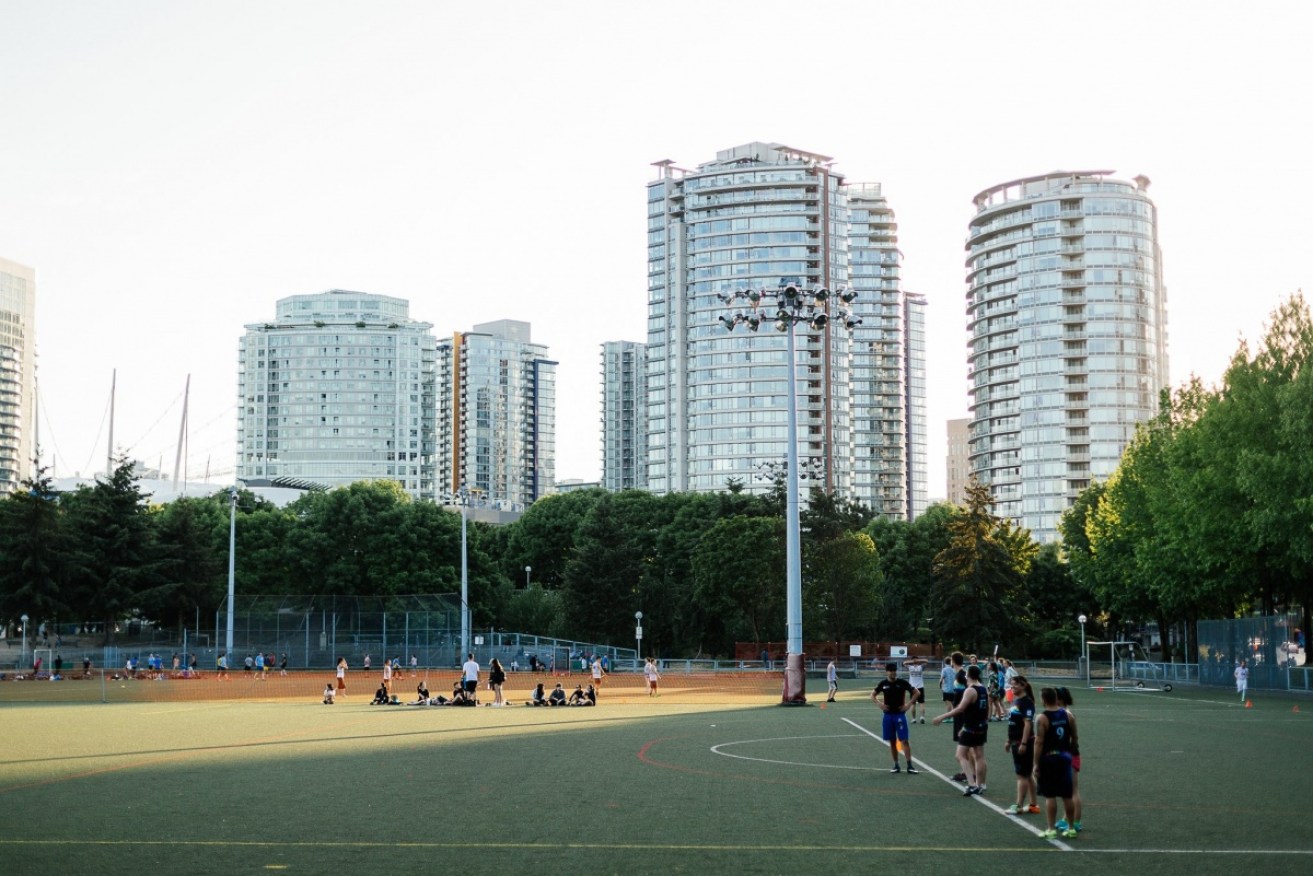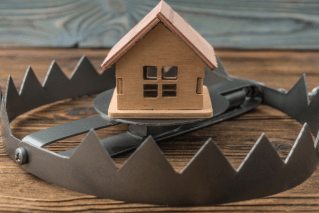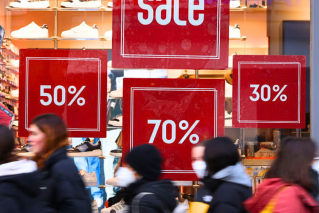Inside the housing frenzy that even homeowners want to end

Apartment towers in Vancouver, where housing costs rose by about 60 per cent in the past three years. Photo: Alana Paterson / NYT
Vancouver, Canada – Between multimillion-dollar tear-downs, blocks full of backyard cottages and towering condominiums that are sold and resold several times before they are even built, there is no shortage of anecdotes about this city’s housing frenzy.
Here is a new one: Vancouver is so expensive that politicians want to tax its real estate market into submission, and many homeowners — who will lose money if home prices fall — think it’s the best idea they’ve heard in years.
“I would like to see a correction to sober up this whole place,” said Rob Welsh, a retired aeroplane mechanic who lives in the Vancouver suburb of Delta. Mr Welsh bought his house in 2000 and has become a paper millionaire based on its appreciation. It makes him more anxious than happy.
“If I got to lose 200 or 300 grand to keep the kids and the future of this place, so be it,” he said.
Like many cities around the world, Vancouver is grappling with punishing housing costs that have pushed out large swathes of residents — and are causing distress among young adults who can’t afford to rent and take it for granted that they will never own a home.
Part of the reason is the attraction of Vancouver itself, and not just among Canadians. Between its natural beauty, temperate climate and Canada’s liberal immigration policies, the city has become a magnet for foreign buyers, especially from China.

While the downtown area is typical of a big city, Vancouver’s zoning restrictions favour low-density living. Photo: Alana Paterson / NYT
Many places in Canada and the United States have tried remedies to the squeeze: tenant protections, housing subsidies and steps to enable developers to build higher and faster so that more housing will come online. But few have gone as far as British Columbia.
Last year, in a provincial election almost entirely about housing costs, citizens voted out the centre-right BC Liberal Party, which had run British Columbia for 16 years, and brought in a government led by the left-of-centre BC New Democratic Party. Since then, the New Democrats have not only tried to increase the housing supply, but have also proposed a slew of measures that aim to curb housing demand and chase away overseas buyers.
The New Democrats raised British Columbia’s foreign-buyer tax to 20 per cent of a home’s purchase price, from 15 per cent (Ontario has a 15 per cent tax). In addition, the party plans to impose higher property taxes on second homes, on families whose primary breadwinner’s earnings come from money abroad and on homes valued at more than CAD$3 million (US$2.3 million). Vancouver has passed a number of local measures, including a tax on empty homes.
“There’s no question that many of the measures we are bringing in are bold, but we felt they were critical if we were really going to address this crisis,” Carole James, British Columbia’s finance minister, said in an interview.

A condo project called Vancouver House (left) and Rob Welsh, a retiree in the suburb of Delta, who says the market is too hot. Photos: Alana Paterson / NYT
This would seem politically perilous. Two-thirds of Canadians own their homes, roughly the same share as the US. And Canadians, like Americans, expect to make money from the investment. Yet a number of polls, and interviews with homeowners like Mr Welsh, suggest that Vancouverites are so shocked by the price levels that even homeowners want the market to cool.
In 2016, the non-profit Angus Reid Institute in Vancouver found that roughly two-thirds of residents in the metropolitan area wanted home prices to fall, including half of homeowners. More startling was that one in five homeowners in the survey expressed a desire to see home prices fall by 30 per cent or more.
No doubt, many voters would think twice about that opinion if home prices actually crashed. Still, respondents “were clearly reacting from a place of deep anxiety, even desperation, about their own or their loved ones’ ability to access the housing market,” said Shachi Kurl, executive director of Angus Reid.

While construction is being encouraged, other local efforts are aimed at “getting out of the mindset that just more is better,” said Gil Kelley, Vancouver’s manager of planning, urban design and sustainability. Photo: Alana Paterson / NYT
And so far, people like what they see from the new government’s attempts to rein in the market: In a separate Angus Reid poll this year, large majorities of British Columbians supported the housing measures proposed by the New Democratic government.
“Unbeknownst to many people in the local population, Vancouver has been sold as a subsidised resort town and retirement community to the world,” said Josh Gordon, a political science professor at Simon Fraser University. “We are now seeing the culmination of that dynamic.”
Vancouver, surrounded by snow-capped mountains and wide maritime views, has never been especially cheap. But home and condominium prices are up by close to 16 per cent over the past year, and about 60 per cent over the past three, according to the Real Estate Board of Greater Vancouver.
What makes these gains so remarkable is that unlike Silicon Valley, London or New York, where the presence of high-paying tech and finance jobs helps explain housing costs, Vancouver has relatively low salaries. As part of their bid for Amazon’s second headquarters, Vancouver officials boasted about having “the lowest wages of all North American tech hubs”.

British Columbia’s new government has raised the tax on foreign buyers and plans to impose higher taxes on second homes and homes valued at more than CAD$3 million. Photo: Alana Paterson / NYT
“We have plenty of jobs, but you might need two or three of them to be able to afford a place to live,” said Andy Yan, director of the City Program at Simon Fraser.
How much of the city’s housing demand is coming from China is hotly debated. Government statistics show foreign buyers own about 5 per cent of the housing stock in the metropolitan area, but the numbers are several times as high for new condominiums, which helps to explain why a surge of building hasn’t done much to reduce prices, according to an analysis by Mr Yan. And this almost certainly underestimates the influence of foreign capital, since the data excludes Canadian immigrants with money from overseas.
The real estate industry contends that the issue is not an influx of Chinese, who have been coming to Vancouver for decades, but zoning restrictions that prioritise low-density living, outside of a few high-rise areas.

A construction site near Mario’s Gelati in Vancouver (left), and homes going up across Vancouver Harbour. Photos: Alana Paterson / NYT
“I live 15 minutes from the downtown core in a house,” said Keith Roy, a real estate agent. “That’s crazy. I should be in a townhouse at this distance, maybe even a low-rise condo building.”
The figures show, however, that unlike other expensive West Coast cities like San Francisco, where the housing supply has long lagged behind population growth, Vancouver has consistently produced new housing. Over the past decade, the housing stock has grown by about 12 per cent, while the population has grown by about 9 per cent, according to the city.
This disparity has persuaded the city to broaden its measures beyond just a push for new buildings to efforts like the empty homes tax.
“It’s getting out of the mindset that just more is better,” said Gil Kelley, the city’s general manager of planning, urban design and sustainability.
Tom Davidoff, an economist at the University of British Columbia, said it was all of the above. Vancouver is popular with foreign buyers, yes. But it also has strict zoning laws that reserve most of the city’s land for single-family homes, as well as high income taxes but low property taxes of about 0.25 per cent of the property value.

“The message we have sent the world is, ‘Come and buy our real estate, but do not try to make a living here’,” said Tom Davidoff, an economist at the University of British Columbia. Photo: Alana Paterson / NYT
“The message we have sent the world is, ‘Come and buy our real estate, but do not try to make a living here’,” Mr Davidoff said. “Mission accomplished.”
While the new government’s housing measures are popular with many voters, richer homeowners are fuming. A recent stroll through Vancouver’s wealthier West Side turned up bright red signs protesting against the tax on CAD$3 million homes. “Are you angry yet?” read one. “Rally against the NDP tax grab now.”
A group of wealthy homeowners also petitioned to get Mr Davidoff, the economist, fired. His sin: talking favourably about increased property taxes.
However it happened, Vancouver’s transformation to an international gateway has given the city something of an identity crisis. For Vancouverites who a generation ago took it for granted that they could buy a home or condo near the urban core, the trade-offs for the steep rise in prices are hard to accept.
“People who live and work in Vancouver can’t afford to live here,” said Nathalie Baker, a lawyer who is in favour of measures to cool the market, even though she owns a home here. “And that is a very significant problem.”
-The New York Times








